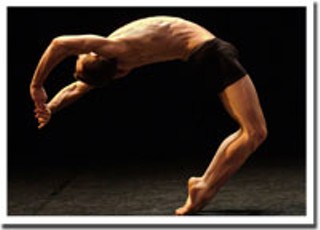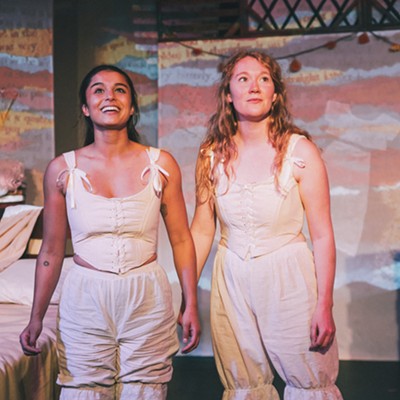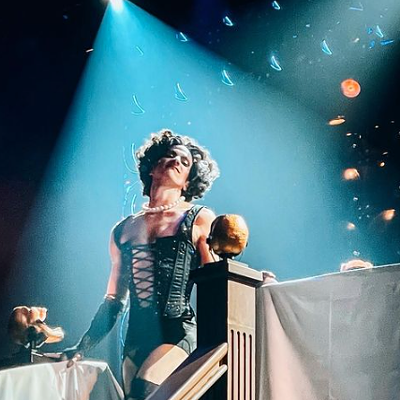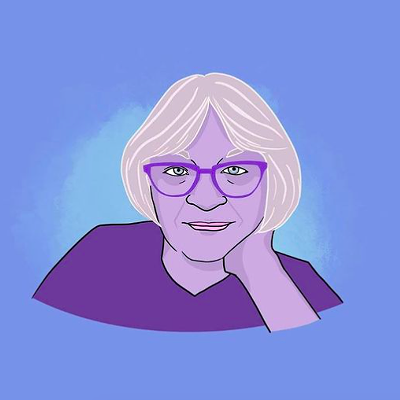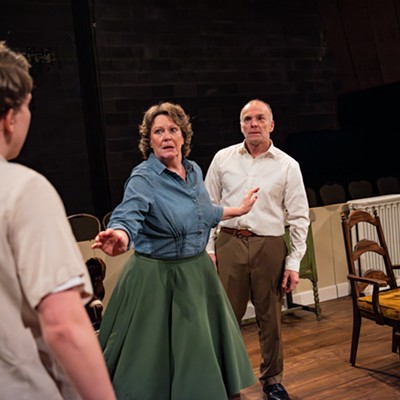Lotus shoes are exquisitely small—measuring about eight centimetres each, they might snuggle into the palm of your hand. Delicately hand-embroidered in silk, it’s shocking that for more than 1,000 years since the 10th century—they were banned in 1911—millions of Chinese women had their feet broken and bound to fit into these teardrop-shaped icons of feminine beauty.
Vancouver dance company Wen Wei’s performance, Unbound, at the Sir James Dunn Theatre this weekend, is a contemporary perspective on the foot-binding ritual, and a physical exploration into societal beauty ideals. Two years ago, CanDance commissioned a new piece by the company’s choreographer and artistic director, Wen Wei Wang. While developing the choreography, Wang wanted his dancers to learn classical Chinese dance. He brought in instructors, who brought with them a pair of three-inch lotus shoes, worn by Peking Opera performers, to replicate the gait of women whose movements were excruciatingly confined by their bound feet. That was Wang’s “a-ha” moment.
“They were tiny red silk shoes. They’re beautiful, almost like ballet pointe shoes in the way that the dancers step in them,” he explains, punctuating his words with gestures, as if he wears a tiny slipper on his hand. Wang says four-year-old girls had their toes broken and tightly wrapped so that by the time they stopped growing, at about 16, their tiny feet were stunted into a concave position, almost like a backwards C. His grandmother’s generation walked and worked, as much as they could, in the shoes.
“When you’re young, they don’t tell you why they do it. It’s just part of the history, of the tradition,” says Wang. “And then I came to Canada. A couple of years ago I went to the Bata Shoe Museum and they have this large collection of lotus shoes and also their history, and I learned how it was a fashion to control women.”
Wang choreographs a series of vignettes and chooses to put his male dancers—the performance features three men and three women—into the shoes. “In the piece, when we put our feet into the shoes, it’s how we experience the past. And we’re artists, we want to experience different things in life. When the man puts his feet in the shoes, what he experiences is the pain of the women. When women put on the shoes they’re so sexy and beautiful, but when men put on the shoes, the image completely changes.”
Wang also makes connections to modern beauty rituals such as high heels and plastic surgery, although he points out that women today have choices, whereas his grandmother didn’t. “In a way, our times have changed but we’re still repeating the history,” he says. Small feet were not only an eroticized ideal, but the smaller a woman’s feet, the better chance of securing a high-ranking husband. Wang says, “They don’t look at the faces, only at the feet—at who has the smallest feet. And it’s not just a few years or one generation, but many, many generations.”
Born in China, Wang started dancing at 13. Then in the 1980s China opened to Western dance companies. Wang was especially drawn to the dark, emotional choreography of Martha Graham. “It was so different,” he says, pushing his hands like a knife against his chest. “When we performed, everything was happy, happy. At that time, art in China was all about politics, not emotions.”
Inspired, he moved to Canada in 1991, performing with the Judith Marcuse Dance Company and then Ballet British Columbia before starting his own company.
“The one thing I tell my dancers is that if you’re going to move, you have to feel it here,” he says, again pointing to his chest. “If you don’t feel it, don’t do it.” Unbound, which Wang estimates has been performed about 30 times across the country, also incorporates improvisation from his dancers. “I think Unbound speaks to the dancers’ emotions, and the audience gets that.”
Unbound, March 26-28 at the Sir James Dunn Theatre, 6101 University, 8pm, $15-$22, 494-3820.

